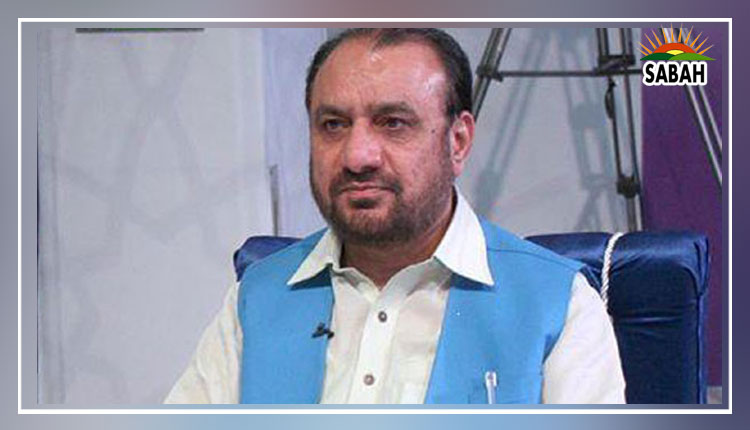New party or new paradigm? …. Abbas Moosvi
An article by former Finance Minister Miftah Ismail published in a local English newspaper on 11th May argued that Pakistan is in need of a new political party. Whilst compelling, his overarching narrative was excessively influenced by donor-driven narratives and a reluctance to point toward and scrutinise the root cause of socioeconomic ills; instead relying on a surface-level overview that ultimately came across as an advertisement for his own latest initiative. In this piece, I respond to Dr Miftah Ismail to argue that it is not the time for a new party but rather a radical reconceptualisation of the ‘software of governance’ in Pakistan.
Dr Miftah argues for empowered local governments that are directly elected by their respective constituencies. Whilst this would be a step in the right direction, it is important to note that there is an entire political economy that undergirds this domain. As things stand, the Pakistan Administrative Service operates at local levels not as a competent, professionalised force executing the demands of political representatives but a parallel stream of governance with its own interests, incentives, and preferences having to do with myopic personal objectives of staff. This is besides the fact that the individuals who populate the ranks of the civil bureaucracy are generalists in their training and thus lack technical expertise in any particular area, resulting in poor quality of service delivery. Without a radical overhaul of this colonial-era institution, one that ensures recruitment strictly on the basis of merit in clearly defined domains, establishment of well thought-out key performance indicators for personnel, digitalisation of internal procedures that minimise sludge/paperwork, and monetisation (and eventual decrements) of all perks, plots, and privileges that massively drain the exchequer, there is little that simple decentralisation would achieve. Interested readers may refer to PIDE’s reports, ‘Cash Poor, Perk Rich’ and ‘Lifetime Cost of Public Servants’ for more details.
The words ‘leaders’ or ‘leadership’ are mentioned a total of 11 times, and Dr Miftah advocates for ‘vision’, ‘integrity’, ‘competence’, ‘intellectual honesty’, ‘clear headedness’, etc at the helm. The fact that he emphasises the qualities of the head of state to the extent that he does in his piece suggests that he is still trapped in the idea that what Pakistan needs is simply the ‘the right person’ (or collective) steering all decision-making processes. This is a grave error. The best, most functional polities in the world are not reliant on the whims of a ‘cabinet’ per se but radically democratic and participatory institutions. In this way, ordinary citizens themselves are involved in their own governance in a manner that blurs the lines between state and society. In practice, this means trade/student unions, farmers’ associations, a flourishing arts/culture domain, a vibrant media sector (X is still banned in Pakistan), and an expansive network of civil society organisations operating in an autonomous fashion rather than being beholden to the interests of big multilateral donors. A comprehensive study on this by PIDE titled ‘Social and Civic Engagement’ points out that only 3% of the population is currently engaged in voluntary association of any sort.
In the same vein, Pakistan’s policy circles are littered with talk of ‘digitalisation’ but hardly ever extend this objective beyond the corporate sector. A citizen’s app, for instance, which allows for both the filing of complains relating to basic amenities and the offering of suggestions for policy that others can upvote/downvote in an interactive manner, would pay dividends. Representatives could be rated on their ability to resolve filed complaints within a certain timeframe on the same platform — similar to how drivers are on riding hailing services — to introduce public accountability in a real-time, dynamic manner.
Additionally, whilst mentioning ‘term limits’ and internal democracy within parties, Dr Miftah does not comment on things like recruitment procedures, financial requirements/transparency, human resource management, conditionalities for the awarding of tickets, or the need to establish linkages with academia and think-tanks for effective, context-specific policy directions. Each of these domains, if restructured appropriately and implemented by the ECP, will transform — in a lasting manner — the incentives of political contestation and naturally populate the corridors of power with merit, responsiveness, and a genuine interest in advancing the collective interests of the Pakistani population regardless of the specific party in power.
Linked to this is, of course, the issue of land and so-called ‘electables’ of Pakistan: whereby political parties approach big landlords possessing coercive power over their respective rural communities for votes in electoral cycles. This ‘system’ of political patronage, in which parties compete with one another to capture as many electables as possible in an elaborate game of I-scratch-your-back-you-scratch-mine, functions to achieve two outcomes: a) ensuring that grassroots presence continues to be a non-essential, leading a massive gulf between ruling elites and their subjects, and b) keeping large swathes of potentially productive agricultural land dormant, obstructing economic growth. Similarly, in urban zones a major chunk of land is held captive by the state in the form of housing for bureaucrats. PIDE estimates could generate upwards of $58 billion in commercial activity over the course of 5-6 years in Islamabad alone if mixed-use, high-rise buildings were instead constructed on the same. Equally importantly, this would foster urban vibrancy and help move towards inclusive, participatory cities that promoted cultural/ideational exchange, political activism, and civil society ventures, thus incubating a more informed and engaged citizenry.
Finally, the fact that Dr Miftah makes exactly zero mention of the words ‘security’, ‘military’, or ‘establishment’ in his piece renders his entire commentary void. From jumping into imperial wars for geopolitical rents and being involved in economic activity in a manner that is antithetical to fair, transparent competition to intimidating activists and playing ‘kingmaker’ in the political arena, the security apparatus is unfortunately at the core of Pakistan’s ills. Failing to name this institution and not place democratic transition at the core of his project suggests that Dr Miftah is not particularly interested in changing the same mindless game of musical chairs that has oriented the polity since independence.
What Pakistan desperately needs is organic grassroots politics, truth and reconciliation committees, and radical institutional reforms to overhaul outmoded and extractive state configurations: not another party populated by a set of top-down (even if ‘benevolent’) leaders. It is time for an entirely new paradigm.
Courtesy The Express Tribune, May 22nd, 2024.












